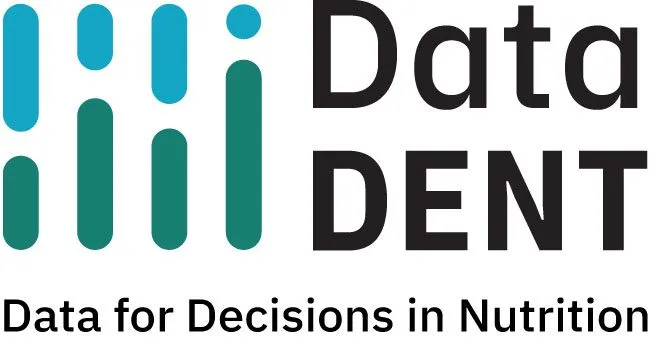A wide range of nutrition stakeholders came together in early December 2021 for the Tokyo Nutrition for Growth (N4G) Summit. Accountability—including “quality data collection and evidence-based progress measurements and reporting”—was one of the event’s five thematic pillars. Other thematic areas included food, health, resilience, and financing.
In the lead up to N4G, DataDENT and partners advocated for all types of participants to make SMART (Specific, Measurable, Achievable, Relevant, and Time-bound) commitments to strengthening nutrition data value chains. As a member of the Nutrition Data Partners Group, DataDENT contributed to the development of commitment guidance and hosted an official N4G side event.
At the end of the 2-day summit, a total of 396 new nutrition commitments were announced by N4G participants, including 80 government departments and ministries, 51 civil society organizations, 7 donor organizations, 10 international organizations, 7 academic and research institutions, and 26 private sector businesses. Commitments totaled over $27 billion (USD) in nutrition-specific and nutrition-sensitive financing. As of 14 December 2021, 108 accountability and data commitments were recorded in the official list of N4G commitments shared by the Ministry of Foreign Affairs of Japan (Figure 1); additional commitments are recorded in the 2021 Nutrition Accountability Framework (NAF) maintained by the Global Nutrition Report (GNR).

Figure 1: Number of commitments for each thematic area made by participating organizations and institutions (data from Tokyo Compact on Global Nutrition for Growth Annex: Commitments 14 Dec 2021)
Governments have made the most data-focused commitments by far but some N4G commitments from CSOs and donors have also focused on specific elements of the nutrition data value chain. Examples include:
- The Ministry of Health and Family Welfare of Bangladesh committed to the creation of multisectoral budget tracking system, strengthening and expansion of the existing nutrition surveillance system, coordination among partner ministries to implement the Second National Action Plan for Nutrition (NPAN2), and to facilitate monitoring through administrative data systems and survey-based data collection.
- The Prime Minister’s Office in Tanzania committed to financing and expansion of a Multisectoral Nutrition Information System across 11 priority sectoral ministries by 2026.
- The Scaling Up Nutrition Civil Society Network committed to supporting the development, implementation, budgeting, and monitoring and evaluation of National Nutrition Action plans in at least half of the SUN countries.
- Summit Institute for Development committed to expansion and improved use of routine client data on the Open Smart Register Platform (OpenSRP) mobile information system and the completion of an interoperable, unified data system across the healthcare system.
- The Bill and Melinda Gates Foundation committed to the production of large-scale food fortification data and efforts to increase the availability and use of dietary data.
Other countries who made data-focused N4G commitments as of mid-December 2021 include Australia, Burkina Faso, Cambodia, Cameroon, Canada, Comoros, Democratic Republic of the Congo, Ecuador, El Salvador, Eswatini, Ethiopia, the Gambia, Ghana, Guinea, Haiti, Indonesia, Japan, Kenya, Madagascar, Mali, Mongolia, Nepal, Niger, Nigeria, Pakistan, Peru, Philippines, Rwanda, Senegal, Somalia, Sri Lanka, Sudan, Tanzania, Togo, Uganda, United Kingdom, United States of America, Yemen, and Zimbabwe.
Making a commitment is important, but ultimately, what matters is whether or not that commitment is kept. According to the GNR, just over half (54%) of the commitment goals made at previous N4G events in 2013 and 2017 were on course or reached by 2020. However, many of these earlier commitments did not have adequate follow-up mechanisms.
Resources are required to move commitments to action. That is why over the last week (24-27 January 2022) the World Bank and partners hosted a series of N4G side events focused on nutrition financing.
To enable action around nutrition data commitments, stakeholders should allocate at least 5% of total nutrition funding to strengthening data and information systems. DataDENT has shown that few countries have comprehensive data plans within or alongside their costed multisector nutrition plans. Such plans are a first critical step towards specifying, costing, and advocating for data needs across the various sectors that influence nutrition outcomes.
DataDENT is currently conducting two country-level activities that can help guide efforts to plan and budget for nutrition data. In Nigeria, we are working with a multi-agency Nutrition Information System Task Team coordinated by the Federal Ministry of Health to develop recommendations for improved coordination of national nutrition data collection. As part of this work, we have developed a costing framework that can be used to guide decisions around whether and how to collect specific indicators across different survey and administrative data sources. In Ethiopia, we are partnering with the Ethiopian Public Health Institute to do a rapid assessment of the national nutrition data financing landscape. The work aims to improve joint planning for nutrition data between the Government of Ethiopia and development partners as well as to enhance data advocacy and resource mobilization efforts. Outputs will be available on the DataDENT website by mid-2022.
